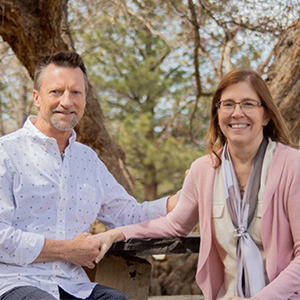Life is difficult, especially during the COVID pandemic. There are many losses we experience that we never expected. Many have lost their jobs, some have lost their homes. Children have been home from school since March, making this the longest summer “vacation” ever. Perhaps you are enjoying this extra time with your kids, but just as likely, they are on your last nerve. How does one work full-time from home and at the same time homeschool (possibly multiple) kids?
What about the other losses? For me, I am missing opportunities to travel. I have a new grandson who I cannot fly to see. I just got my master’s degree, and will have no graduation ceremony to acknowledge four years of hard work. I have a major birthday coming up this month that I will not be able to celebrate with friends.
Perhaps you have even harder losses to grieve, like the death of a loved one, the breakup of a romantic relationship or children going off the rails. How do you handle your grief?
Options for Handling Grief
Denial
One way I often try to handle my grief is to ignore that I am grieving. You’ve heard the old saying “Keep a stiff upper lip?” Yep, that’s me. How about you? Do you try to deny the pain you are feeling because thinking about it is just too hard? What happens when we do this? You guessed it . . . it comes back to bite us later.
I recently had an experience like this. When my kids left for college, my life was in such upheaval I had no time to think about my sadness at my empty nest. I always wondered why people got so upset when their kids left home. After all, isn’t that the entire point of raising kids, so that they can become adults? Many years have passed since two my oldest children went out of state to college and remained in those states. My husband and business partner David and I recently moved. In the move, I found several large boxes of items I had saved from my kids’ childhoods. My initial thought was to throw them away since I hadn’t looked at them in years. When it came time to do it, I realized I couldn’t. I was just too sad about the loss of having my kids nearby to even consider throwing away their hand-written Mother’s Day Cards and school projects.
Suddenly, I was in full blown grief. Why was I dealing with this now? Mainly because I didn’t deal with it then. Thankfully, my sweet husband encouraged me to bring everything with us to the new house. I have taken the time to slowly go through each item I have saved, look it over and remember the sweetness (and sometimes pain) of my childrens’ growing up years. I have been able to decide which items I would like to keep, and those that I don’t, while fully grieving what I have lost.
Allow Yourself Time to Mourn
If you, like me, have learned to deny your emotional pain, how can you begin to feel the pain you’ve denied for a long time? Here is my suggestion. Spend some time alone. Maybe you will do this in a dark room, at a coffee shop, on a long walk, run or drive. Whatever works best for you, give yourself permission to take the time you need. Think about the losses you’ve suffered. As you begin to feel sadness, anger, anxiety, guilt or other negative feelings, try not to talk yourself out of them. Don’t allow others to either. Your family and friends may not like you spending time in mourning, and they may not understand why this is important for you to do.
You might also write your feelings in a journal. Each time you allow yourself to mourn, reread what you have written and add to those feelings. Over time, you will hopefully see your grief dissolving.
Seek Counseling
If you don’t find your grief decreasing, it might be time to seek some help from a trained counselor. We would be happy to work with you to process your grief and move to a happier place.



